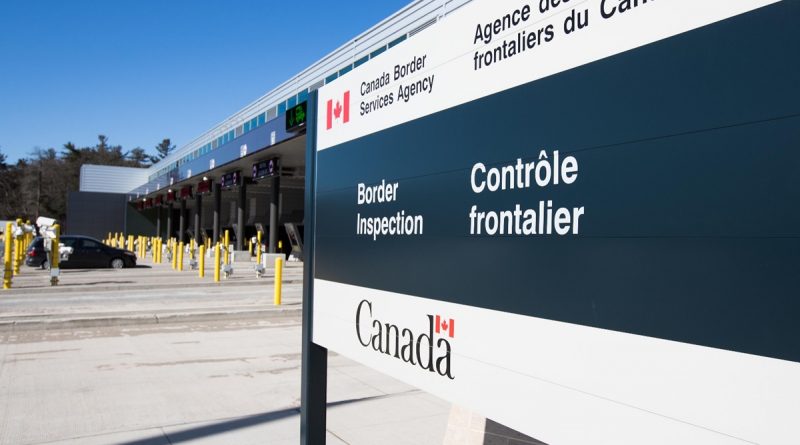Canada Open Border on August 9, 2021 to U.S. and on September 7, 2021 to Global Travellers
Original Title:
Easing border measures for fully vaccinated travellers entering Canada – Permitting discretionary travel for citizens and permanent residents of the United States
Backgrounder
On September 7, 2021, provided that Canada’s COVID-19 epidemiology remains favourable, the Government intends to open Canada’s borders for discretionary travel by travellers from any country who have been fully vaccinated with Government of Canada-accepted vaccines at least 14 days prior to entering Canada and who meet specific entry requirements.
With the advent of increased vaccination rates in Canada, declining COVID-19 cases and reduced pressure on health care capacity, the government intends to bring a number of changes into effect, provided that Canada’s COVID-19 epidemiology remains favourable. On August 9, 2021, at 12:01 a.m. EDT, fully vaccinated citizens and permanent residents of the United States (U.S.), currently residing in the U.S., will be permitted to enter Canada for discretionary (non-essential) travel. Entry to Canada will continue to be prohibited for U.S. travellers who are not fully vaccinated and for all other foreign nationals, unless they already meet an exemption set out in the Orders made under the Quarantine Act.
To be eligible to enter Canada, fully vaccinated American citizens and permanent residents must have received the full series of a vaccine – or combination of vaccines – accepted by the Government of Canada at least 14 days prior to entering Canada. Currently, those vaccines are manufactured by Pfizer-BioNTech, Moderna, AstraZeneca/COVISHIELD, and Janssen (Johnson & Johnson). Travellers can receive their vaccine in any country, and must provide evidence supporting their vaccination in English, French or with a certified translation (along with the original).
In addition, fully vaccinated travellers must also:
- provide COVID-19-related information electronically through ArriveCAN (app or web portal) including proof of vaccination prior to departing for Canada (subject to limited exceptions);
- meet the pre-entry testing requirements;
- be asymptomatic upon arrival; and
- have a paper or digital copy of their vaccination documentation in English or French (or certified translation, along with the original) ready to show a government official on request.
All travellers must still present a suitable quarantine plan, and be prepared to quarantine, should they not meet all of the conditions required to be exempt from quarantine. They will also be required to follow public health measures in place, such as monitoring for signs and symptoms of COVID-19, wearing a mask when in public and keeping a copy of their vaccination documentation and test results – as well as a list of close contacts and locations visited – for 14 days after entry to Canada. For air travel, passengers continue to have to wear a mask in Canadian airports and on board flights to, from and within Canada, with few exceptions, and regardless of their vaccination status.
What changes on August 9
Entry to Canada
- Allow discretionary (non-essential) travel for fully vaccinated American citizens and permanent residents, currently residing in the U.S., who meet all required criteria. This includes the need to submit information electronically through ArriveCAN.
- Allow entry of unvaccinated children under 12 years of age, or unvaccinated dependent children (due to a mental or physical condition), who are U.S. citizens or permanent residents currently residing in the U.S. and who are accompanying a fully vaccinated parent, step-parent, guardian or tutor who either has a right to enter Canada (e.g. Canadian citizens and permanent residents), is a U.S. citizen and permanent resident currently residing in the U.S, or is otherwise is permitted entry under the US Prohibition on Entry Order made under the Quarantine Act. They must meet all other required criteria, including submitting information electronically through ArriveCAN and all testing requirements.
- Travellers who do not meet all the required eligibility requirements for discretionary (non-essential) travel will be denied entry into Canada, precluded from boarding their flight, and/or could face additional fines on arrival. It is therefore important that all travellers find out about whether they are eligible to enter Canada well in advance of their travel, and understand applicable requirements.
Testing Requirements
- Allow Canadian citizens and permanent residents travelling to the U.S. for less than 72 hours to do their pre-entry test in Canada.
- Allow individuals who have recovered from COVID-19, but continue to test positive, to present a positive COVID-19 molecular test result on a specimen taken 14 to 180 days prior to arrival in Canada as part of the pre-arrival test requirements.
- Adjust post-arrival testing for fully vaccinated travellers. Using a new border testing surveillance program at airports and land border crossings, fully vaccinated travellers will not need a post-arrival test unless they have been randomly selected to complete a Day 1 COVID-19 molecular test. This shift responds to the pandemic’s evolution and will monitor prevalence in travellers. It will also identify new variants of concern entering Canada and provide intelligence, including vaccine effectiveness.
- There are no changes to the mandatory testing requirements for unvaccinated travellers.
Temperature screening requirements
- Due to the improving epidemiological situation in Canada, effective August 9, 2021, Transport Canada will remove the requirement for the Canadian Air Transport Security Authority (CATSA) to perform pre-board temperature screening of passengers on all domestic flights and international departures (including Transborder), as well as airport workers.
- These changes will make the travel process more streamlined, ensuring that passengers spend less time in airports, while still maintaining necessary public health measures (e.g., wearing of masks at airports and on board all flights to, from and within Canada).
Quarantine Requirements
- Eliminate the three-night government-authorized hotel stay requirement for all travellers arriving by air as of 12:01 a.m. EDT on August 9.
- Continue to require unvaccinated travellers to undergo Day 1 and Day 8 COVID-19 molecular tests, and complete a mandatory 14 day quarantine, subject to limited exceptions.
- Unvaccinated children under 12 years of age and dependent children (due to a mental or physical condition) of fully vaccinated travellers will no longer have to complete a 14 day quarantine, but must follow strict public health measures. This includes those travelling from the U.S for discretionary purposes. This means they can move around with their parents, but must avoid group settings – such as camps or daycares – during the first 14 days after their arrival. Unvaccinated children will remain subject to the Day 1 and Day 8 testing requirements. Provinces and territories may have more stringent rules around people who have recently returned from travel. More details will be available in the coming days.
Proof of vaccination for foreign nationals permitted entry for discretionary purposes, who enter on the basis of their vaccination status
- Starting August 9, 2021, air carriers will be verifying that the travellers coming to Canada have submitted their information digitally by using the ArriveCAN app or website before they board their flight. Discretionary travellers who are unable to show their ArriveCAN receipt – either on their mobile device or a printed copy – will not be allowed to board their flight to Canada, as they are ineligible to enter Canada. In addition to their ArriveCAN receipt, travellers should carry their actual vaccine certificate with them to show officials at the border entry point.Discretionary travellers include:
- Fully vaccinated American citizens or permanent residents who reside in the U.S., and are entering from the U.S. for discretionary (non-essential) travel (starting on August 9, 2021); and
- Other fully vaccinated foreign nationals coming to Canada for discretionary (non-essential) purposes (intended to start on September 7, 2021)
- Travellers with a right to entry, (e.g. Canadian citizens and permanent residents), or travellers who qualify for entry under another exemption (e.g. immediate or extended family member) or who are coming to Canada for essential reasons (such as temporary foreign workers, or international students) will not be denied boarding, but will be required to submit information relating to their vaccination status via the ArriveCAN app or website.
Eased quarantine and testing requirements based on vaccination status
- Individuals who cannot be fully vaccinated due to a health condition for which vaccination is contraindicated according to the vaccine’s label may also qualify for the eased quarantine and testing requirements currently available to fully vaccinated travellers, but must follow a modified quarantine. More details will be available in the coming days.
- Travellers arriving in Canada by marine mode will now be eligible for eased quarantine and testing requirements if they have received the full series of a vaccine – or combination of vaccines – accepted by the Government of Canada at least 14 days prior to entering Canada. Currently, those vaccines are manufactured by Pfizer-BioNTech, Moderna, AstraZeneca/COVISHIELD, and Janssen (Johnson & Johnson). They must also meet all other critieria, including the pre-entry test requirement and the need to submit information electronically through ArriveCAN before or when entering Canada. This is to accommodate for Wi-Fi issues on the water. All travellers must still provide a quarantine plan and be prepared to quarantine, in case it is determined at the border that they do not meet the necessary requirements.
Travel advice:
While Canada continues to trend in the right direction, the epidemiological situation and vaccination coverage is not the same around the world. The Government of Canada continues to advise Canadians to avoid non-essential travel outside of Canada – international travel increases your risk of exposure to COVID-19 and its variants, as well as of spreading it to others. Border measures also remain subject to change as the epidemiological situation evolves. As Canada begins to welcome fully vaccinated travellers from the U.S., the Government of Canada will continue to monitor the situation and provide updated travel advice to Canadians.
Approved vaccines
Moderna COVID-19 vaccine
About the vaccine, how it works, how it is given, ingredients, allergies, possible side effects, safety monitoring
Pfizer-BioNTech COVID-19 vaccine
About the vaccine, how it works, how it is given, ingredients, allergies, possible side effects, safety monitoring
AstraZeneca/COVISHIELD COVID-19 vaccine
About the vaccine, how it works, how it is given, ingredients, allergies, possible side effects, safety monitoring
Janssen (Johnson & Johnson) COVID-19 vaccine
About the vaccine, how it works, how it is given, ingredients, allergies, possible side effects, safety monitoring
Types of vaccines
mRNA vaccines
About mRNA vaccines, how they work, safety, effectiveness, monitoring
Viral vector-based vaccines
About viral vector-based vaccines, how they work, safety, effectiveness, monitoring





